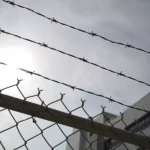The World Health Organization's (WHO) push for a pandemic treaty has sparked intense debate and criticism. Critics argue that such a treaty would cement the WHO's missteps during the COVID-19 crisis into a permanent framework, potentially leading to a loss of national sovereignty and individual freedoms.
Historical Mismanagement and Current Proposal
Throughout the COVID-19 pandemic, the WHO faced backlash for handling the crisis, including its delayed response, miscommunication, and controversial endorsements of lockdowns and mandates. Now, with the proposed pandemic treaty, the WHO aims to gain unprecedented powers, including the ability to enforce lockdowns, mandates, and other health measures globally.

Critique of the Pandemic Treaty
Critics argue that the treaty represents a significant overstep of WHO’s authority, threatening to impose one-size-fits-all solutions on diverse nations with different health needs and priorities. The treaty's broad scope could undermine democratic processes, allowing the WHO to dictate health policies without sufficient accountability or input from member states.
The Loss of Citizen Rights
The proposed treaty has raised alarms about potential infringements on citizens' rights. By centralizing decision-making power, the treaty could limit individual countries' ability to respond to health crises in ways that reflect their unique contexts and values. This top-down approach risks sidelining effective localized strategies and disregarding the nuanced understanding that local health authorities have of their communities.
WHO’s COVID-19 Failures as a Warning
The WHO's handling of the COVID-19 pandemic – from praising China's transparency to flip-flopping on mask guidance – has been widely criticized. These failures highlight the dangers of granting the organization more power. The WHO's past actions suggest it may not effectively manage the authority a pandemic treaty would confer, potentially leading to mismanagement of future health crises.
A Call for Caution and Transparency
The WHO pandemic treaty, while aimed at enhancing global health security, raises serious concerns about governance, autonomy, and individual freedoms. Before any agreement is reached, it is crucial that the WHO addresses its previous shortcomings and establishes clear, transparent guidelines that protect the rights of citizens and the sovereignty of nations. Without careful consideration and revisions, the treaty could become a tool for overreach rather than a blueprint for better global health.
Censorship and Control: Echoes of Autonomy Loss
Critics, including platforms like “Stop World Control,” argue that the WHO's approach during the COVID-19 pandemic, and the proposed pandemic treaty, represent a dangerous consolidation of power that undermines national sovereignty and individual rights.
They point to instances of alleged censorship and professional retribution against medical practitioners and scientists who diverged from the WHO-endorsed pandemic response strategies. These critics claim that such actions are indicative of a broader agenda to stifle debate and centralize control over global health policies, potentially leading to a loss of citizens' rights to informed medical choice and freedom of expression in health-related matters.

Carl Riedel is an experienced writer and Open Source Intelligence (OSINT) specialist, known for insightful articles that illuminate underreported issues. Passionate about free speech, he expertly transforms public data into compelling narratives, influencing public discourse.













